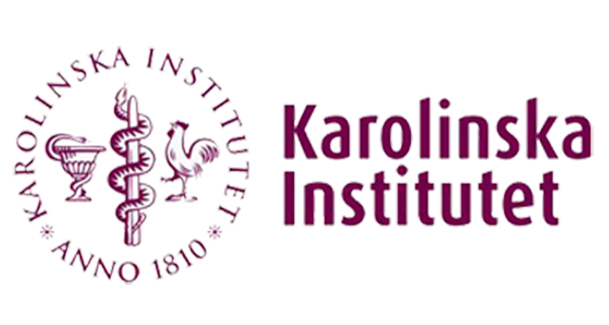 Institute of Environmental Medicine, Karolinska Institutet (KI) is the largest centre for medical education and research in Sweden and home of the Nobel Prize in Physiology or Medicine. The Institute of Environmental Medicine, a department at KI, Stockholm, Sweden, is devoted to in vitro and in silico analyses pertaining to physical and chemical aspects of environmental medicine and health protection.
Institute of Environmental Medicine, Karolinska Institutet (KI) is the largest centre for medical education and research in Sweden and home of the Nobel Prize in Physiology or Medicine. The Institute of Environmental Medicine, a department at KI, Stockholm, Sweden, is devoted to in vitro and in silico analyses pertaining to physical and chemical aspects of environmental medicine and health protection.
The Division is equipped with excellent tissue culture facilities for ENM toxicity studies and brings existing large data sets on ENM toxicity and omics analyses to the project, including results stored in the NanoMiner database.
WP6 leader. Main tasks include integrative meta-analysis of ENM exposure omics studies as well as ENM corona proteomics profiles to identify groups of genes/gene sets that are coordinately associated with phenotypes and structural features across multiple studies. Data from the NanoMiner database is entered into ISA-TAB-nano templates and linked with phenotypic and structural information from the UM/KI NanoWiki. Later, high-throughput screening and omics data from EU NanoSafety Cluster (NSC) partner projects and, through KI collaborations, from U.S.-EU nanoEHS partnerships is used.
Prof. B. Fadeel, M.D., Ph.D., is Head of the Division of Molecular Toxicology and Vice Chairman of the Institute of Environmental Medicine. He holds a professorship in Medical Inflammation Research at KI. Research in his laboratory addresses broadly ENM toxicity mechanisms in malignant diseases and inflammation applying cell cultures and systems biology methods, including related to ENM corona proteomics and omics analysis. Prof. Fadeel is the past coordinator of the FP7 funded NANOMMUNE project (2008-2011). He leads the safety evaluation in the EU FET Flagship project GRAPHENE, and is current partner with theme leader and WP leader roles in the FP7-MARINA and FP7-NANOSOLUTIONS projects with focus on ENMs toxicity in mammalian cell models. Prof. Bengt Fadeel and Prof. Yoram Cohen (U.C.L.A, Los Angeles, CA, U.S.) co-chair U.S.-EU nanoEHS dialogue on "Predictive Modeling for Human Health", providing links and access to ENM profiling data from the U.S. partner projects.
Prof. Bengt Fadeel is the Principal Investigator, with extensive expertise in ENMs toxicity studies. Dr Pekka Kohonen is an expert on toxicogenomics (via the ToxBank EU FP7 Project), data curation (ISA-TAB), integrative omics analyses and high-throughput/high content screening data analysis.
|
1)
|
Fadeel B, Feliu N, Vogt C, Abdelmonem AM, Parak WJ. Bridge over troubled waters: understanding the synthetic and biological identities of engineered nanomaterials. Wiley Interdiscip Rev Nanomed Nanobiotechnol. 2013;5(2):111-29. |
|
2)
|
Kohonen P, E Benfenati, D Bower, R Ceder, M Crump, K Cross, RC. Grafström, L Healy,C Helma, N Jeliazkova, V Jeliazkov, S Maggioni, S Miller, G Myatt, M Rautenberg, G Stacey, E Willighagen, J Wiseman, B Hardy. The ToxBank Data Warehouse: Supporting the Replacement of In Vivo Repeated Dose Systemic Toxicity Testing. Molecular Informatics 2013, 32, 47-63. |
|
3)
|
Winkler DA, Mombelli E, Pietroiusti A, Tran L, Worth A, Fadeel B, McCall MJ. Applying quantitative structure-activity relationship approaches to nanotoxicology: Current status and future potential. Toxicology. 2012. pii: S0300-483X(12)00397-6. |
|
4)
|
Shi J, Karlsson HL, Johansson K, Gogvadze V, Xiao L, Li J, Burks T, Garcia-Bennett A, Uheida A, Muhammed M, Mathur S, Morgenstern R, Kagan VE, Fadeel B. Microsomal glutathione transferase 1 protects against toxicity induced by silica nanoparticles but not by zinc oxide nanoparticles. ACS Nano. 2012;6(3):1925-38. |
|
5)
|
Feliu N, Walter MV, Montañez MI, Kunzmann A, Hult A, Nyström A, Malkoch M, Fadeel B. Stability and biocompatibility of a library of polyester dendrimers in comparison to polyamidoamine dendrimers. Biomaterials. 2012;33(7):1970-81. |
